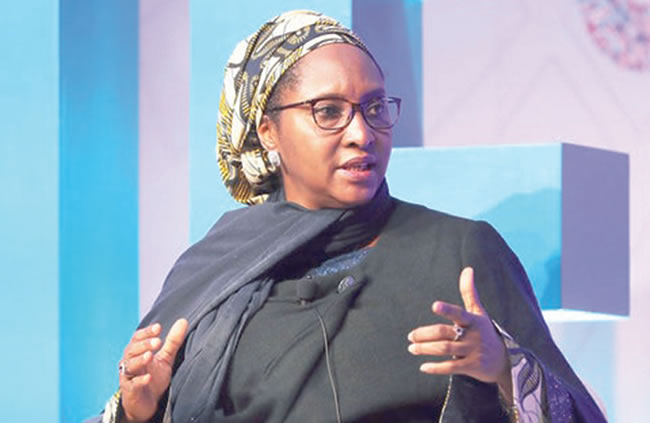THE Federal Government has tasked universities in Nigeria to redesign their curriculum to lay more emphasis on building skills in students, saying this should be a major consideration above issuance of certificates to those who are usually referred to as half-baked and unemployable.
Minister of finance, Budget and National Planning, Mrs Rainab Ahmed, gave the charge while delivering a keynote address at the Ahmadu Bello University, (ABU) Zaria’s 14th annual general assembly and home coming organised by the alumni association of Zaria.
She said the call became imperative because what the global community is looking out for is the skills and not the certificates.
Stakeholders have also expressed concerns about graduate employability, especially considering the revelation by the National Bureau of Statistics(NBS) that the unemployment rate during the fourth quarter of 2020 was 33.3 per cent, an increase from the 27.1 per cent recorded in the second quarter of 2020.
Ahmed said: “It does not matter if you have a certificate as a doctor, an accountant or an architect but what skills and competences can you bring to bear? So, it has to be the university system that drives this reform of the education curriculum in our country.
“Some of our neighbouring countries, just Ghana down the road, ensure that every person that completes secondary school comes out with a skill, whether it is tailoring, hairdressing or carpentry,” she said.
The minister emphasised that Nigeria has to shift attention towards technical education and skill acquisition as it refines and upgrades standards in acquiring core certificates.
“I firmly believe that our collective achievement of the 2030 Agenda for Sustainable Development and the African Union development hinges in part on whether we are able to sustainably strengthen our universities and other tertiary institutions.
“This is particularly true as the 4th industrial revolution has great potential to drive global transformation and innovation in the education sector and beyond,” she added.
Ahmed noted that there are increasing demands for quality tertiary education as a result of the need to expand access to primary and secondary education.
Meanwhile, the president of Education Rights Initiative, Mr Solomon Udah has asked the Federal Government to ensure that the pledge to allocate 0.5 per cent of Nigeria’s Gross Domestic Product to research and innovation, be actualised in order to spur the nation’s economic growth and tackle graduate unemployment in the country.
He said the rate of graduate unemployment in the country was unacceptable and that sustained efforts must be to review the curriculum being implemented in schools across the country while encouraging research and innovation in the nation’s tertiary institutions.
He recalled that President Muhammadu Buhari, who was recently represented by vice president Yemi Osinbajo (SAN), made the commitment during the 2021 Technology and Innovation Expo with the theme: “Science, Technology and Innovation for Economic Recovery and Sustainability Amidst COVID – 19 challenges.”
Buhari had lauded the decision taken by the African Union’s Executive Council in 2006 to establish a target for all member-states of one per cent of GDP investment in Research and Development in order to improve innovation, productivity, and economic growth.
“We are aware that only a few African countries have met this target, but as a result of the challenges of this critical sector of the economy, we will allocate a minimum of 0.5 per cent of our GDP to research and innovation as a way to fast track meaningful development,” he said.
YOU SHOULD NOT MISS THESE HEADLINES FROM NIGERIAN TRIBUNE
We Have Not Had Water Supply In Months ― Abeokuta Residents
In spite of the huge investment in the water sector by the government and international organisations, water scarcity has grown to become a perennial nightmare for residents of Abeokuta, the Ogun State capital. This report x-rays the lives and experiences of residents in getting clean, potable and affordable water amidst the surge of COVID-19 cases in the state.






